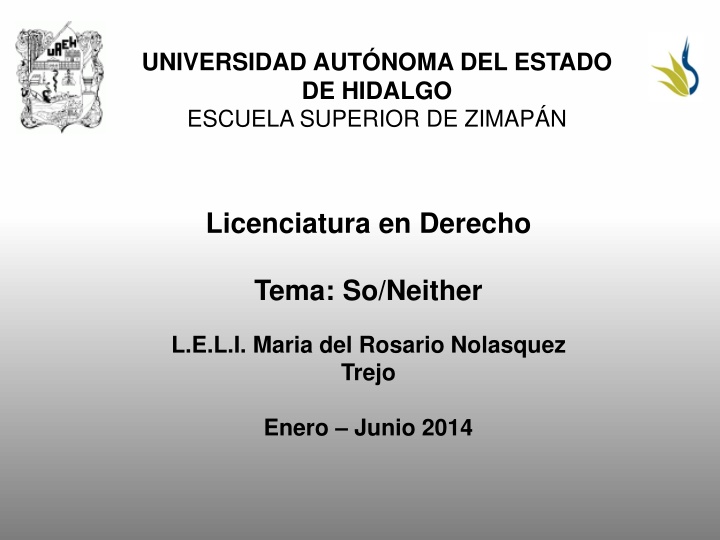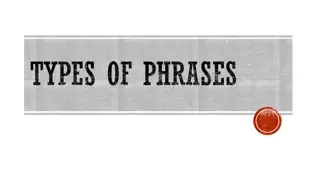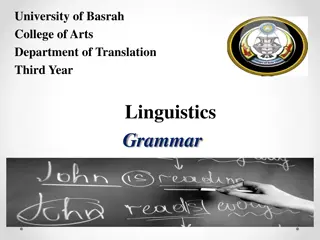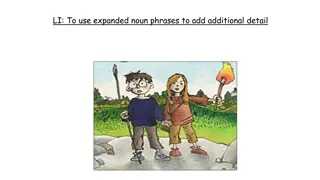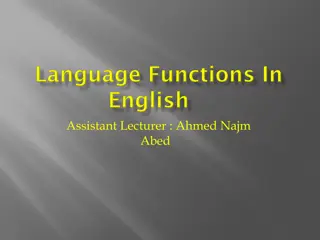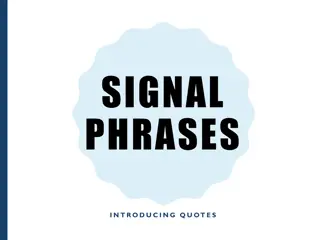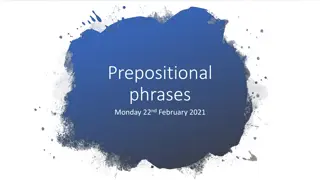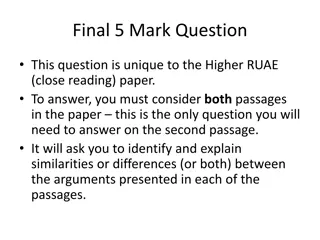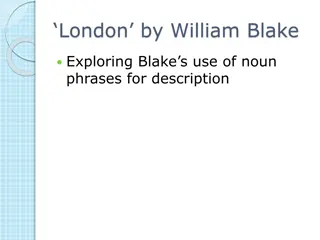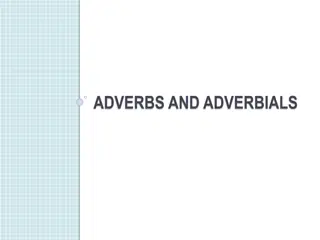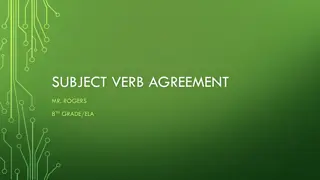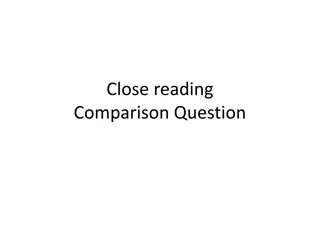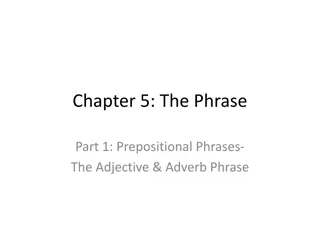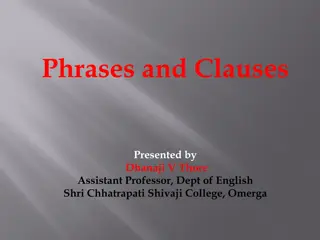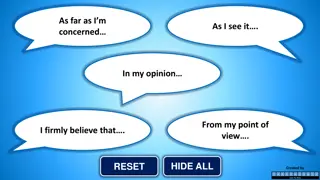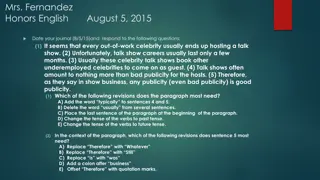Recognizing Agreement and Disagreement Phrases in English Conversation
This topic focuses on identifying phrases that denote agreement or disagreement in English conversations. Students will learn how to appropriately use these phrases to express opinions on various topics, emphasizing agreement or disagreement and the feelings associated with such situations.
Download Presentation

Please find below an Image/Link to download the presentation.
The content on the website is provided AS IS for your information and personal use only. It may not be sold, licensed, or shared on other websites without obtaining consent from the author.If you encounter any issues during the download, it is possible that the publisher has removed the file from their server.
You are allowed to download the files provided on this website for personal or commercial use, subject to the condition that they are used lawfully. All files are the property of their respective owners.
The content on the website is provided AS IS for your information and personal use only. It may not be sold, licensed, or shared on other websites without obtaining consent from the author.
E N D
Presentation Transcript
UNIVERSIDAD AUTNOMA DEL ESTADO DE HIDALGO ESCUELA SUPERIOR DE ZIMAP N Licenciatura en Derecho Tema: So/Neither L.E.L.I. Maria del Rosario Nolasquez Trejo Enero Junio 2014
Tema: So/Neither Resumen (Abstract) Reconocer frases y expresiones que denoten acuerdo y/o desacuerdo. Usar dichas frases y expresiones de manera correcta. To recognise phrases and expressions that denote agree and disagree. To use these phrases and expressions in a correct way. Palabras clave: (keywords) Agree/disagree So/Neither
Objetivo general: El alumno podr expresar y fundamentar acuerdos y desacuerdos, realizar invitaciones as como aceptar o rechazar las realizadas por terceros. Asimismo, preferencias, obligaciones y necesidades. podr expresar
Nombre de la unidad: Expresar acuerdos, desacuerdos y sentimientos personales. Objetivo de la unidad: Expresar opiniones sobre temas diversos, enfatizando si se est de acuerdo o no y que sentimientos provoca tal situaci n.
Tema: So/Neither 1.1. Expresar acuerdos y desacuerdos. Introducci n: We use So + auxiliary + I to agree with positive sentences. So do I I really love travelling. I enjoyed the concert. I am excited about the party So did I So am I
Desarrollo del tema: We use Neither + auxiliary + I to agree with negative sentences. Neither do I. Neither did I. I don t go out much. I didn t sleep well. I can t play basketball. Neither can I.
We use a positive form of an auxiliary to disagree with a negative sentence. I don t like cycling. Oh, I do. Oh, I will. I won t go to work on Saturday.
We use a negative form of an auxiliary to disagree with a positive sentence. Oh, I m not. I m student. Oh, I haven t I ve studied English. I like pizza. Oh, I don t I excercised this morning Oh, I didn t
Auxiliary verbs. are/is/am do/does have/has did will should would might can could may must ought was/were
Conclusin o cierre: We use so/neither to agree with positive sentences and so/neither to agree with negative sentences. Finding things in common agree So am I So have I Neither did I Neither can I So do I Neither should I So must I disagree Oh, I m not Oh, I haven t Oh, I did Oh, I can Oh, I don t Oh, I shouldn t Oh, I musn t 1 I am vegetarian 2 I have a dog 3 I didn t watch the TV yesterday 4 I can t swim 5 I wish it was Saturday 6 I shouldn t clean my room. 7 I must wear a tie to school.
Bibliografa del tema: (Establecer referencias bibliogr ficas. ( m nimo 3) Redston, C. y Cunningham, G. (2005). Face2face Pre-intermediate Student s Book. Italy: Cambridge. LearnEnglish. Ompersonal. (1999). Recuperado el 24 de marzo de 2014, de ompersonal:http://www.ompersonal.com.ar/omverbs/regularver bs.htm Murphy, Raymond. (2001). English Grammar In use. Great Britain:Cambridge University Press.
